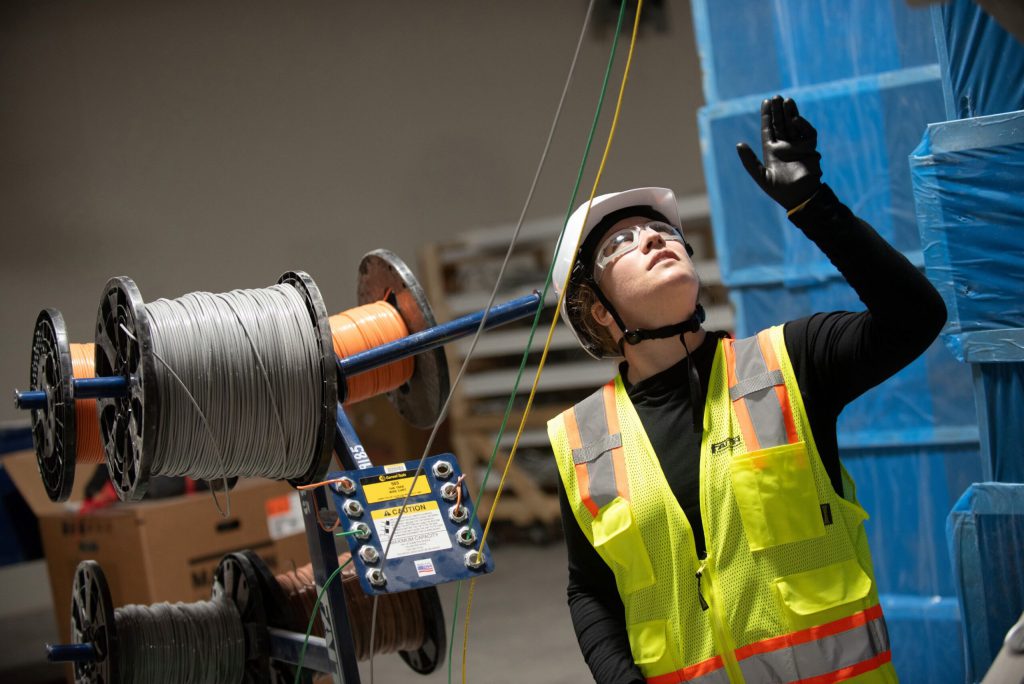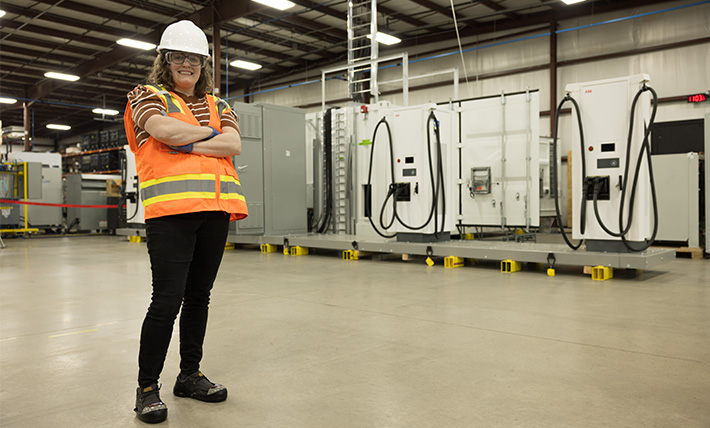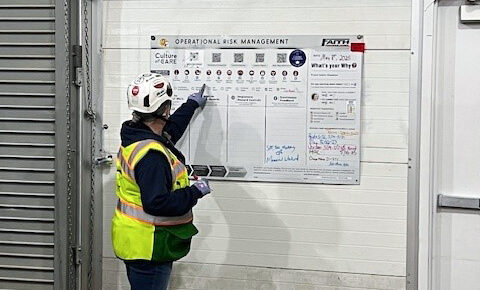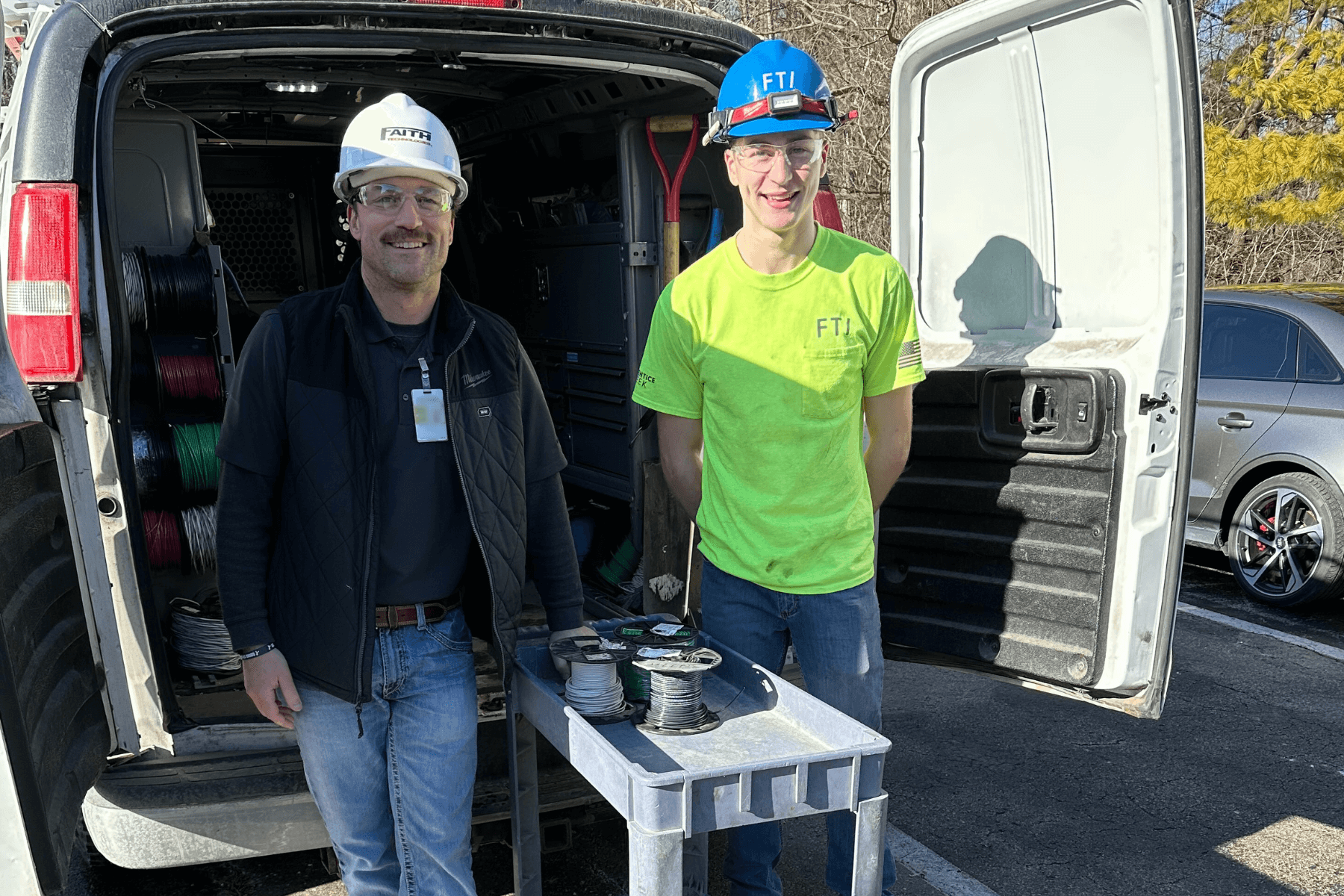
Co-written with Sara Hutchcraft, guest author. Sara is a senior preproduction manager at FTI.
“In a male-dominated industry, women in construction are like diamonds in the rough – strong, resilient, and shining bright.” ~Anonymous
Women in the trades play a vital role in shaping our environment. Here are some key points about their roles in the construction and manufacturing industries:
- Statistics:
- A 2023 report from the Bureau of Labor Statistics (BLS) reveals that 10.8% of construction workers in the United States are women, even though they are 47% of the overall U.S workforce.
- Challenges:
- Construction is predominantly male-populated.
- In these fields, women face challenges such as stereotypes, bias, lack of representation and unequal opportunities.
- Contributions:
- Women lead the way in mentoring talent.
- Women challenge norms and drive positive change within design and construction.
At Excellerate, less than 8% of our team members are females, but we’re making big impacts daily. Here are two of our stories.
Sara’s Story
I always had an interest in architecture and construction, and all through middle and high school I wanted to be an architect. Once I got to college, I quickly realized I wanted to do more than just draw on a piece of paper or on the computer and decided to pursue the construction industry as a whole. I started working at FTI in 2014, and from the beginning was able to explore work in different departments, from estimating, virtual design and construction (VDC) and engineering to project controls and project management. This gave me the opportunity to see a project from a conceptual idea to finished product, which is why I love doing what I do today. Throughout this process, I really found a passion for the preconstruction world and for mission critical projects. It proves that at FTI, there is no one path people have to follow – the opportunities for women in our industry are endless.
In 2016, I joined the Kansas City Chapter of the National Association of Women in Construction (NAWIC) and quickly got involved in committees, the board of directors, and served as chapter president in 2021-2022. Through this, I have been able to make valuable construction industry connections and be part of a support system for challenges that arise for women in construction. It also showed me how important it is to be a role model for young girls and women who have an interest in any male-populated field. When they see another female in the role, they are more likely to believe they can do it too.
Okho’s Story
I began my professional life in 1993 and have worked in the electrical industry my entire career. I’ve held a wide range of positions in leadership and as an individual contributor. I’ve worked in the private sector, the public sector and now with FTI, an energy leader. The electrical industry, whether utilities, construction or manufacturing, is an environment where I can use my skill set of critical thinking, love of working with numbers, solving issues and working in teams. While I have experienced instances of stereotype and bias, I have also always found coworkers who collaborate, support and build each other up. Whether through shared experiences with customers or common interests outside of work, I have carved out a solid group of peers who make the workday a little brighter; a little easier. Do I think the industry has a ways to go when it comes to the inclusion and acceptance of women? Yes. Will I actively contribute to that growth? Also, yes. The coming generations are leading the way of change, and I look forward each day to being able to support, promote and tap into their youthful energy.
Encouraging Outlook
The future for women in our industries is bright and can be enhanced by each of us encouraging women to pursue careers in our industries. Organizations that enable equal opportunities, mentorships and supportive workplaces reap the benefits they bring.
“When you’re a woman in construction, you don’t just break barriers; you build them too.” ~Grace Johnson
If you enjoyed this blog article, please subscribe to stay up to date on the latest industry news from our experts at FTI.










